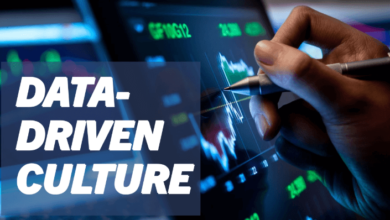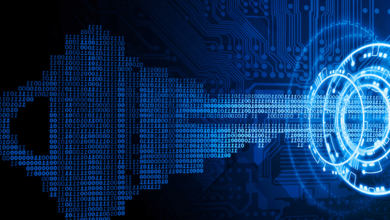Technology in 2025: Driving Innovation and Transformation

Technology is evolving at an unprecedented pace, shaping how we live, work, and interact. From artificial intelligence (AI) to cloud computing, 5G networks, Internet of Things (IoT), and blockchain, innovations are revolutionizing industries, businesses, and daily life. Staying informed about technology trends in 2025 is essential for businesses, professionals, and individuals aiming to remain competitive and leverage the latest advancements.
This article explores the most important technology trends of 2025, their impact, and how they are transforming the digital world.
Artificial Intelligence: Powering Smarter Solutions
Artificial Intelligence has become a cornerstone of modern innovation. AI systems can analyze large datasets, recognize patterns, and make decisions faster than humans.
- Healthcare: AI supports early diagnosis, robotic surgeries, and personalized treatments.
- Business: Companies leverage AI-powered analytics, chatbots, and automation to improve efficiency and customer experience.
- Education: Adaptive learning platforms provide personalized content tailored to each student’s needs.
Experts predict that AI could contribute over $15 trillion to the global economy by 2030, highlighting its transformative potential across industries.
Cloud Computing: Enabling Flexibility and Growth
Cloud computing allows businesses to store, process, and manage data remotely, providing scalability, collaboration, and cost efficiency.
- Scalability: Businesses can expand or reduce resources according to demand.
- Collaboration: Teams can work together in real-time, regardless of location.
- Cost Efficiency: Reduces expenses for hardware, maintenance, and IT infrastructure.
Leading providers such as AWS, Microsoft Azure, and Google Cloud enable organizations to innovate faster and remain competitive.
See also: Technology in 2025: Driving Innovation and Transformation
5G Networks: Transforming Connectivity
The rollout of 5G technology is redefining connectivity with faster speeds, lower latency, and improved network reliability.
- Entertainment: Smooth streaming, online gaming, and immersive virtual reality experiences.
- Healthcare: Enables telemedicine, remote surgeries, and real-time patient monitoring.
- Smart Cities: IoT-enabled infrastructure improves traffic management, energy efficiency, and public safety.
By 2030, billions of devices will rely on 5G networks, driving innovation across multiple sectors.
Internet of Things (IoT): Connecting Devices and Systems
The Internet of Things connects devices to the internet, creating smarter homes, workplaces, and cities.
- Smart Homes: Control lighting, appliances, and security systems remotely.
- Healthcare: Wearables track vital signs, sleep patterns, and physical activity.
- Smart Cities: IoT sensors optimize energy use, traffic, and waste management.
Analysts estimate over 30 billion IoT devices will be connected worldwide by 2030, making IoT a cornerstone of modern living.
Cybersecurity: Protecting Digital Assets
As technology grows, cyber threats are becoming more sophisticated. Cybersecurity ensures that sensitive data is safe and trust is maintained.
- AI-Powered Security: Detects and prevents cyberattacks in real-time.
- Encryption: Protects communications and transactions.
- User Awareness: Educating users reduces risks from phishing, malware, and identity theft.
With cybercrime projected to cost trillions annually, robust cybersecurity strategies are essential for businesses and individuals.
Blockchain: Beyond Cryptocurrency
Blockchain technology provides secure and transparent solutions beyond digital currencies.
- Finance: Enables fast, secure, and transparent financial transactions.
- Supply Chain: Tracks products from origin to delivery, reducing fraud.
- Healthcare: Protects sensitive patient records and ensures data integrity.
The rise of Web3 and decentralized applications (dApps) highlights blockchain’s growing importance in modern digital ecosystems.
Green Technology: Innovation Meets Sustainability
Green technology combines innovation with environmental responsibility.
- Renewable Energy: Solar, wind, and hydro reduce dependence on fossil fuels.
- Electric Vehicles (EVs): Support cleaner transportation alternatives.
- Smart Energy Grids: AI-driven systems optimize energy use and reduce waste.
Green technology proves that progress can coexist with sustainability, benefiting both businesses and the environment.
Emerging Technologies to Watch
Several emerging technologies are set to transform industries and lifestyles:
- Quantum Computing: Provides unprecedented computational power for solving complex problems.
- Metaverse: Creates immersive digital experiences for work, education, and entertainment.
- Biotechnology: Advances in genetics improve healthcare, agriculture, and food security.
- Artificial General Intelligence (AGI): Machines capable of human-like reasoning and decision-making.
These innovations have the potential to redefine industries, economies, and everyday life in the coming decade.
Conclusion
Technology in 2025 is more than just convenience—it is the foundation of progress. AI, cloud computing, 5G, IoT, blockchain, and green technology are transforming businesses, industries, and personal life. Cybersecurity ensures safety and trust, while emerging innovations such as quantum computing, biotechnology, and the metaverse promise even greater advancements.
For businesses, embracing these technologies is crucial for competitiveness and growth. For individuals, staying informed and adopting technology leads to smarter living, better opportunities, and enhanced efficiency. Ultimately, technology is not just shaping the future—it is defining it.




